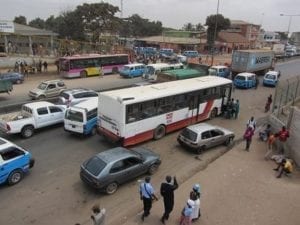Transport is indispensable to Africa and is the best way to boost economic development, for example, in the agricultural sector. Unfortunately, there is a deficiency in infrastructure on the continent. What is heartening to see is that there are pockets of excellence in Africa, such as in East Africa.
However, for transport to work it has to be integrated and accessible. What has been found is that in Africa, people use public transport because they have no choice as few own private automobiles. Once they have saved up enough money to buy a car, they stop using public transport in favour of private vehicles, which causes congestion on the roads. South Africa has fairly well-developed transport infrastructure and attempts are being made to institute a transport authority. The success of public transport initiatives in South Africa can be seen in the fact that 77% of riders on the Gautrain leave their cars at home and use the train. In terms of taking this infrastructure across the border, the challenge is going to be electricity supply – Metrorail uses 3 000 V of direct current while the Gautrain uses 25 000 V. Regionalisation is the key to get Africa growing fast and it is essential to reduce transportation costs in order to improve the economy. A truck can stand at the Beit Bridge border for days, trying to get across, at an average cost of $1 000 a day, which increases logistics costs exponentially. A good example of an initiative that ensures the seamless flow of goods is the North–South Corridor, which links the port of Durban to the Copperbelt in the Democratic Republic of Congo (DRC) and Zambia.There is a huge sense of entrepreneurship in rural Africa and people find innovative methods of transportation that suit the climate. Most citizens in rural Africa rely on bicycles as a method transport, which works even in the rainy season when trucks cannot be used.
The African Union (AU) has set a target for intra-Africa trade of 30% by 2030. In order to reach this goal, much needs to be done. South African companies need to participate in inter-continental PPP initiatives. Transport needs to become intermodal and unimodal transport needs to be avoided. The funding deficit for infrastructure in Africa is about $30 billion and if this deficit is going to be made up, political stability will need to be ensured. Africa is expensive because of the lack of infrastructure. To catapult Africa into the next era, implementation is needed. Leadership plays a key role in ensuring that goals are achievable and it is only when a stable environment is in place that people are willing to take risks.






